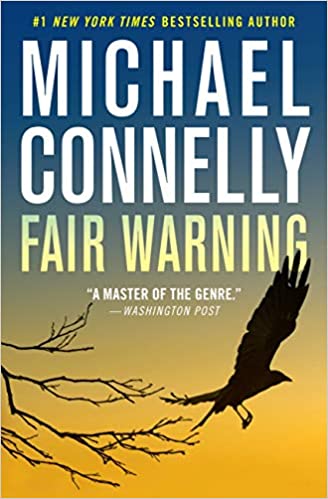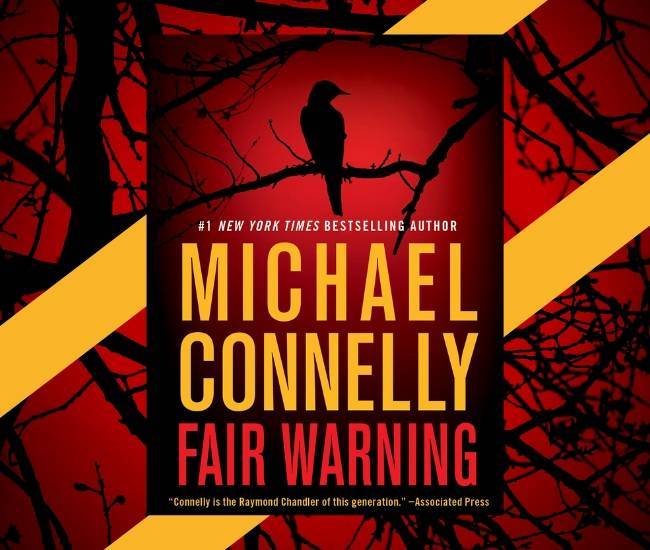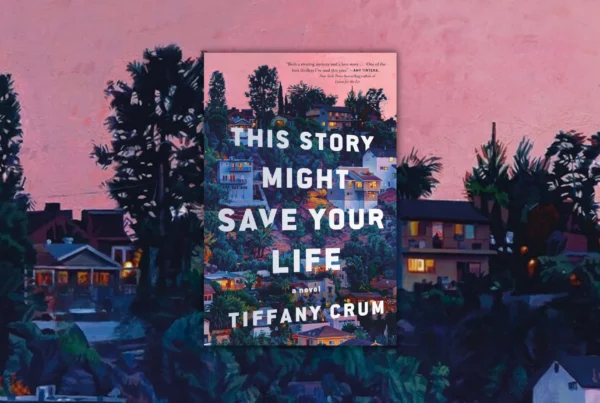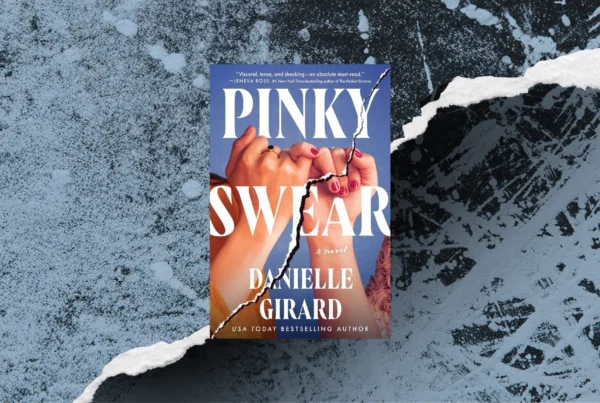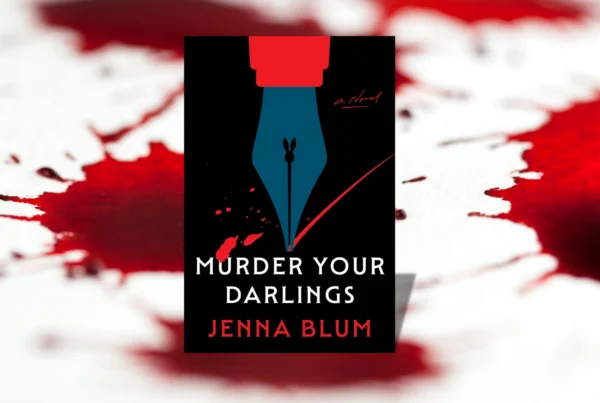Fair Warning by Michael Connelly
The cover blurb on Michael Connelly’s latest novel, Fair Warning (Little, Brown and Company) is one hell of an anointment. Beneath the title, the Associated Press proclaims: “Connelly is the Raymond Chandler of this generation.” As in: Here be the heir to crime fiction’s mightiest throne. This comparison to Chandler is not entirely accurate, which is not to say that Connelly isn’t his generation’s greatest crime writer. He is. And yes, both men have staked out the same shadows of Los Angeles, defining the City of Angels as the eternal mecca of noir.
Yet, Michael Connelly is less in the lineage of Raymond Chandler than he is in the tradition of another member of the hard-boiled holy trinity. That trinity consists of Dashiell Hammett, Raymond Chandler, and Ross MacDonald — the three undisputed forefathers of a certain high lit standard of crime writing in America. The Associated Press’s glittering comparison was warranted, but under-read. Really, Michael Connelly is the Ross MacDonald of this generation.
THE HARD-BOILED HOLY TRINITY OF CRIME WRITING
Hammett may have kicked the doors of the genre open, giving it some overdue respect, but Chandler was a stylist through and through. He was a serious literary novelist, who just happened to be writing a private eye series, and he knew it. No one, in any genre, writes a simile like Raymond Chandler. Yet, like plenty of literary novelists before and after, he never cared much for plot. It seemed almost beneath him. (This is the man who famously forgot who killed the chauffeur in his iconic debut, The Big Sleep.) For Chandler, it was all about the sentences and the characters; plots were the concern of lesser scribblers.
Ross MacDonald refuted that (rather arrogant) notion. MacDonald wrote sentences that stood up to Chandler’s, who was admittedly his idol, but he was also meticulous with his plotting. The machinery of his Lew Archer novels is precise; every piece of plot falls into its rightful place. To ignore that necessity would be not only lazy, it would disrespect the reader — and let’s face it, readers of crime fiction are a voracious bunch.
Michael Connelly comes from that tradition. Call it the Ross Macdonald School of both Style and Structure. Connelly writes beautiful sentences; his characters come alive; and just as importantly, his plots are always airtight.
A THIRD BOOK IN THE JACK MCEVOY SERIES
Fair Warning, his latest, is a refreshing reintroduction of one of his lesser-known recurring characters: journalist Jack McEvoy. In the Connelly universe of overlapping series, there is Harry Bosch; there is Mickey Haller, the Lincoln Lawyer; there’s the relatively new and already beloved Renée Ballard; and then there is the righteous hack, Jack McEvoy.
Fair Warning marks just his third appearance in a Connelly novel — coming after 1996’s The Poet and 2009’s The Scarecrow. It’s curious that Connelly has kept McEvoy on the shelf for so long, and not only because The Poet — his fifth book — was considered such a breakout success. It’s interesting also because McEvoy seems closer to Connelly himself than any of his other celebrated characters.
Before turning to fiction, Connelly was an award-winning newspaper reporter at the LA Times. So was McEvoy. Both character and writer frequently lament the sorry state of newspapers and the embattled positions reporters now find themselves in. And both believe to the core that good journalism full of integrity is a bedrock piece of American culture. Without it, society starts to go sideways, without the fourth estate to keep folks honest.
AN INCEL SERIAL KILLER WITH ACCESS TO GENETIC DATA
The plot here takes the well-trod serial killer story into a heady new realm. Here is a killer for the dystopian digital age. His victims are tracked with the help of genetic data. The world of DNA ancestry testing is evidently one patrolled with little government oversight. What should be anonymous submissions to sites like 23andMe (the stand-in here is called GT23) don’t always stay anonymous, as they’re sold to secondary markets for further genetic testing. Into this unregulated space come some bad actors, including that pathetic class of angry young men known these days as “incels” — i.e., involuntary celibates. Their misogynist, misplaced rage is anything but harmless, particularly in the dizzying space of genetic data, where so many blindly submit their DNA without contemplating where it may wind up.
Connelly fans across all platforms are in for some treats here. After all, he’s more than a writer now; he’s a multimedia content creator, with a hit show — Bosch — and a killer podcast, Murder Book. Both are referenced in clever, meta-ways that further reveal just how much Connelly might see of himself in Jack McEvoy.
Beyond the legendary comparisons, the bestsellers, the new platforms, here is a writer, a journalist, who’s committed to the truth — and who knows how to tell a hell of a story.
